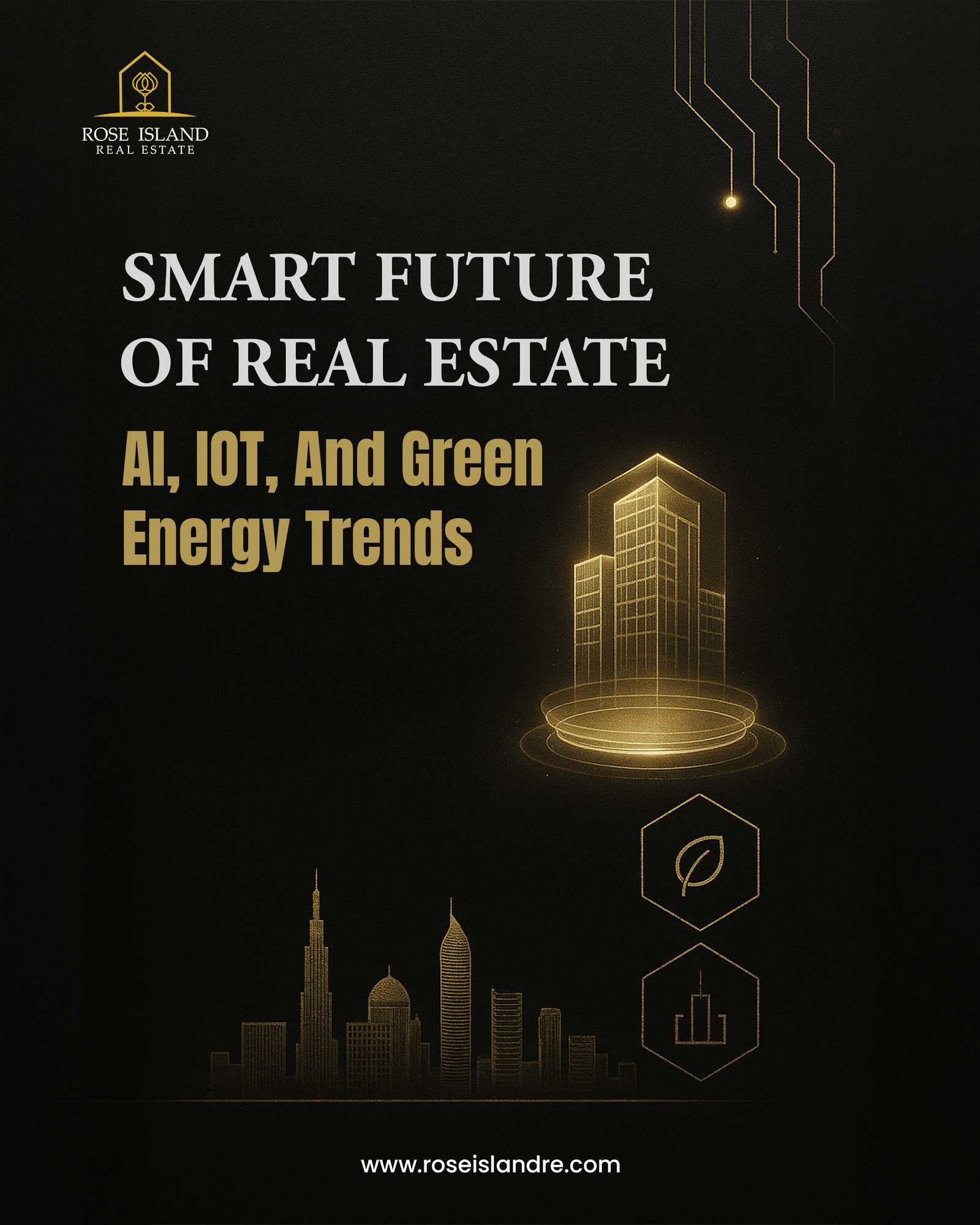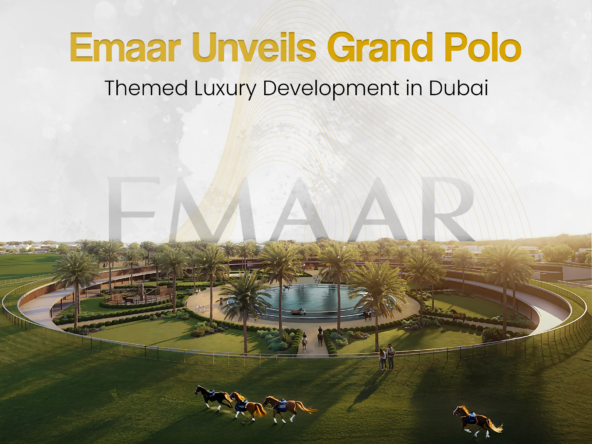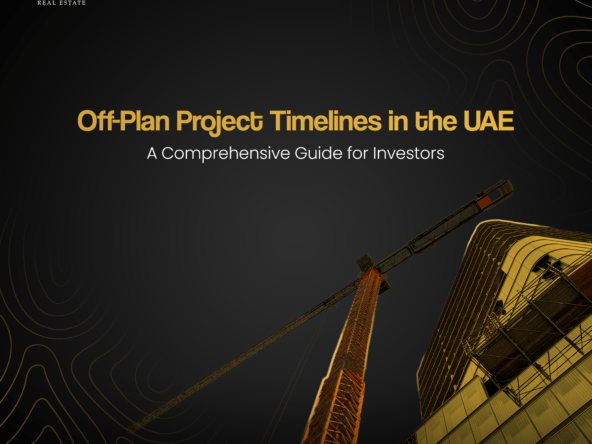The real estate industry is undergoing a transformative shift, driven by the integration of smart technologies such as artificial intelligence (AI), the Internet of Things (IoT), and green energy solutions. This convergence is reshaping how residential communities are designed, built, and managed. Homebuyers are no longer looking for just a house; they seek smart, sustainable, and connected spaces that enhance comfort, security, and long-term value.
In this article, we explore how AI-powered systems, IoT-enabled devices, and renewable energy solutions are setting new benchmarks for modern residential developments—especially in innovative markets like the UAE.
The Role of AI in Smart Residential Communities
AI is at the heart of the smart home revolution. Through data analytics and predictive capabilities, AI enhances both the operational efficiency and livability of residential spaces.
Also Read: Real Estate Tokenization in UAE, get a piece of real estate NOW.
1. Predictive Maintenance and Property Management
AI algorithms can analyze historical and real-time data from various systems—HVAC, elevators, lighting, or water supply—to predict maintenance needs before breakdowns occur. For developers and homeowners’ associations, this means cost savings, increased reliability, and reduced downtime.
2. Personalized Living Experiences
AI-powered smart home hubs, such as voice-activated assistants (Alexa, Google Home, etc.), are evolving beyond basic commands. These systems can learn household routines, automatically adjusting lighting, climate, or energy consumption based on occupant preferences.
3. AI in Real Estate Decision-Making
For developers and investors, AI-driven analytics tools provide insights into buyer trends, property valuation, and urban planning. These tools help identify where to build, what amenities to include, and how to optimize designs for maximum appeal.
IoT: The Backbone of Smart Homes
The Internet of Things (IoT) connects devices, systems, and infrastructure within residential communities, enabling real-time data collection and control. This interconnectedness is not just about convenience; it enhances security, energy efficiency, and overall quality of life.
1. Smart Security Systems
IoT-enabled surveillance cameras, smart locks, and biometric systems provide 24/7 security monitoring. Homeowners can remotely monitor their property, receive alerts, and grant access to guests or service personnel via mobile apps.
2. Energy Efficiency and Utility Management
IoT devices like smart meters and thermostats track energy usage in real-time, allowing residents to monitor consumption and reduce utility bills. Automated lighting systems can dim or switch off when rooms are unoccupied, reducing waste.
3. Integrated Community Management
In modern residential developments, IoT extends beyond individual homes. It connects shared facilities like swimming pools, gyms, parking, and security gates, making it easier for property managers to optimize resources.
Green Energy: Building Sustainable Communities
Sustainability has become a core focus in real estate development, especially in forward-thinking markets like Abu Dhabi and Dubai. Green energy solutions are no longer optional—they are a key selling point.
1. Solar Power Integration
Solar panels and photovoltaic systems are increasingly being incorporated into residential complexes. These systems reduce dependency on fossil fuels while lowering energy costs. Developers are using solar-powered street lighting, water heating, and grid-tied systems to create eco-friendly communities.
2. Smart Grids and Energy Storage
Combining AI and IoT, smart grids ensure that energy generated from renewable sources is efficiently distributed and stored. Residents can benefit from net metering, selling excess energy back to the grid.
3. Sustainable Materials and Construction Practices
Developers are incorporating eco-friendly building materials, energy-efficient insulation, and water recycling systems. Combined with AI-powered design simulations, these innovations reduce the carbon footprint of residential projects.
UAE Leading the Smart Development Trend
The UAE, particularly Abu Dhabi and Dubai, is becoming a global hub for smart residential projects. From Masdar City’s carbon-neutral initiatives to AI-driven infrastructure projects in Dubai South and Yas Island, the country is pioneering smart and sustainable living solutions.
Projects like Gardenia Bay by Aldar and The Sustainable City in Dubai are blending AI-driven home automation with renewable energy systems, setting a new standard for modern real estate. These developments are attracting tech-savvy investors and environmentally conscious buyers, making them future-proof investments.
Benefits for Investors and Homebuyers
1. Higher Property Value
Smart, energy-efficient homes command higher resale values due to their long-term cost savings and advanced features. Buyers are willing to pay a premium for convenience, sustainability, and security.
2. Lower Operational Costs
Green energy solutions combined with AI-powered energy optimization reduce monthly expenses, making these properties attractive for both homeowners and investors seeking higher rental yields.
3. Enhanced Lifestyle and Security
Smart communities offer a holistic living experience with seamless connectivity, safer environments, and better amenities—all of which appeal to families and professionals alike.
The Future of Smart Residential Developments
Looking ahead, the integration of AI, IoT, and renewable energy will become a standard requirement rather than a luxury feature. Technologies such as 5G connectivity, AI-powered robots, and blockchain-based property management systems will further revolutionize the real estate sector.
Developers who adopt these trends early will gain a competitive advantage and build communities that stand the test of time. For investors, the shift to smart, eco-friendly real estate offers long-term value creation and resilience against market fluctuations.
Final Thoughts
The next generation of residential developments is all about intelligence, sustainability, and innovation. By integrating AI, IoT, and green energy, developers are not just building homes—they are creating connected ecosystems that improve quality of life while protecting the planet.
For buyers and investors, this evolution represents an unmissable opportunity to be part of a real estate revolution that prioritizes value, convenience, and environmental responsibility.





